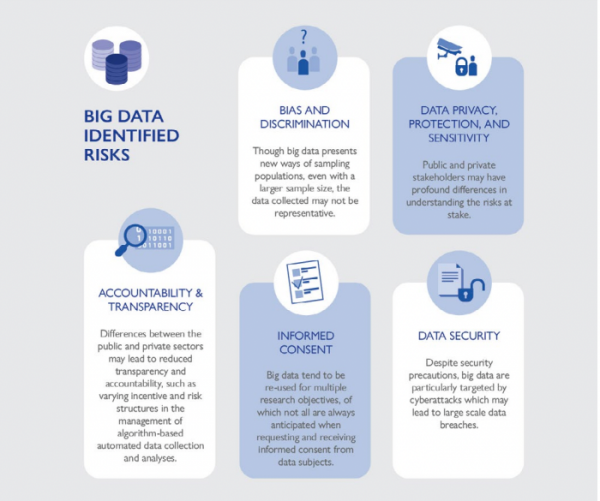IOM practitioner’s paper: “This paper assesses the ethical risks of using non-traditional data sources to inform migration related policymaking and suggests practical safeguards for various stages during the data cycle. The past decade has witnessed the rapid growth of non-traditional data (social media, mobile phones, satellite data, bank records, etc.) and their use in migration research and policy. While these data sources may be tempting and shed light on main migration trends, ensuring the ethical and responsible use of big data at every stage of migration research and policymaking is complex.
The recognition of the potential of new data sources for migration policy has grown exponentially in recent years. Data innovation is one of the crosscutting priorities of IOM’s Migration Data Strategy.
Further, the UN General Assembly recognises rapid technological developments and their potential in
achieving the Sustainable Development Goals and the Global Compact for Safe, Orderly and Regular Migration highlights the importance of harnessing data innovation to improve data and evidence for informed policies on migration. However, with big data comes big risks. New technological developments have opened new challenges, particularly, concerning data protection, individual privacy, human security,
and fundamental rights. These risks can be greater for certain migrant and displaced groups.
The identified risks are:…(More)” (see also Big Data for Migration Alliance)

